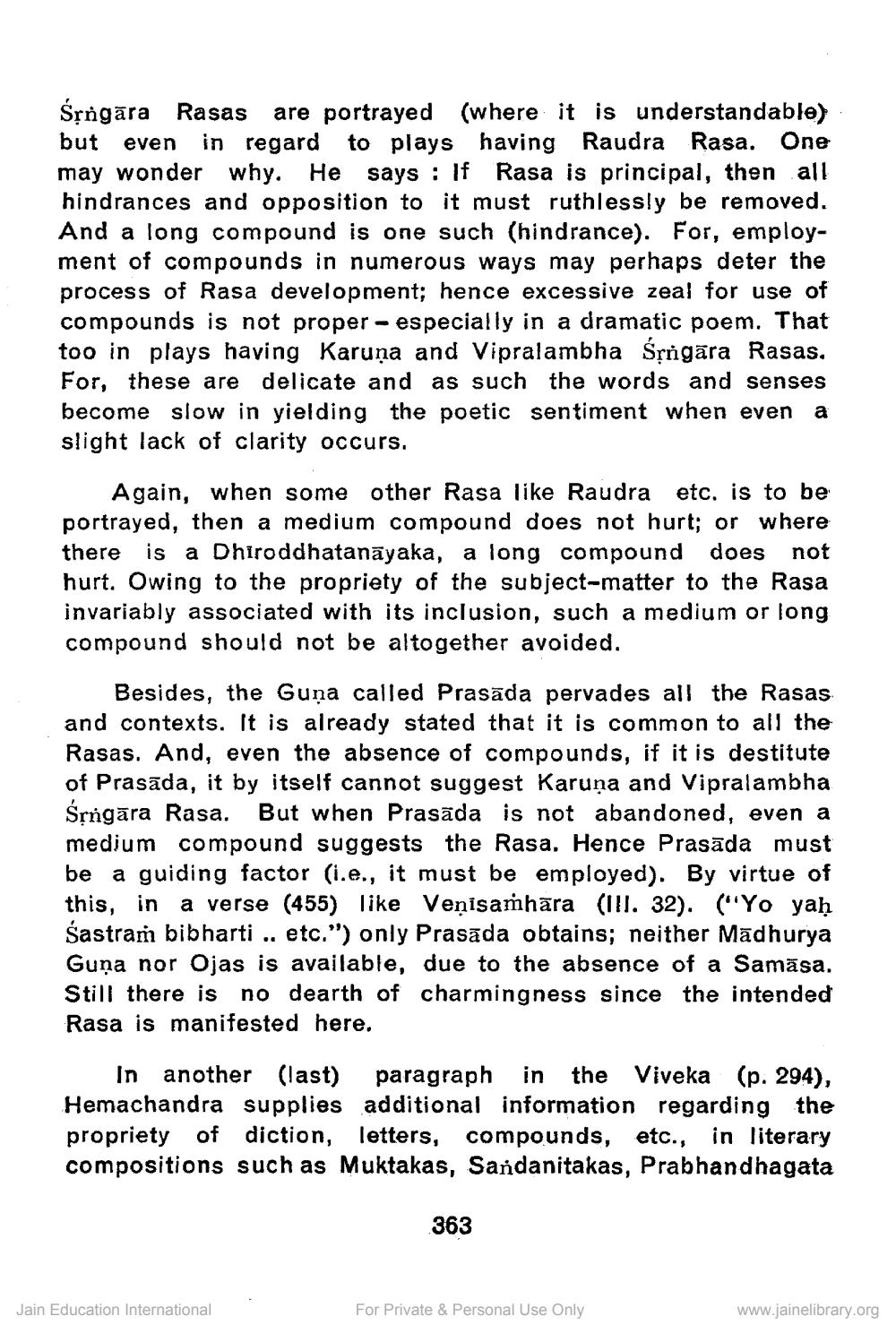________________
Śrngāra Rasas are portrayed (where it is understandable) but even in regard to plays having Raudra Rasa. One may wonder why. He says : If Rasa is principal, then all hindrances and opposition to it must ruthlessly be removed. And a long compound is one such (hindrance). For, employment of compounds in numerous ways may perhaps deter the process of Rasa development; hence excessive zeal for use of compounds is not proper - especially in a dramatic poem. That too in plays having Karuna and Vipralambha Sệngāra Rasas. For, these are delicate and as such the words and senses become slow in yielding the poetic sentiment when even a slight lack of clarity occurs.
Again, when some other Rasa like Raudra etc. is to be portrayed, then a medium compound does not hurt; or where there is a Dhiroddhatanāyaka, a long compound does not hurt. Owing to the propriety of the subject-matter to the Rasa invariably associated with its inclusion, such a medium or long compound should not be altogether avoided.
Besides, the Guna called Prasāda pervades all the Rasas. and contexts. It is already stated that it is common to all the Rasas. And, even the absence of compounds, if it is destitute of Prasāda, it by itself cannot suggest Karuņa and Vipralambha Śrgāra Rasa. But when Prasāda is not abandoned, even a medium compound suggests the Rasa. Hence Prasāda must be a guiding factor (i.e., it must be employed). By virtue of this, in a verse (455) like Venisamhāra (Ill. 32). ("Yo yaḥ Sastram bibharti .. etc.") only Prasada obtains; neither Madhurya Guņa nor Ojas is available, due to the absence of a Samāsa. Still there is no dearth of charmingness since the intended Rasa is manifested here.
in another (last) paragraph in the Viveka (p. 294), Hemachandra supplies additional information regarding the propriety of diction, letters, compounds, etc., in literary compositions such as Muktakas, Sandanitakas, Prabhandhagata
363
Jain Education International
For Private & Personal Use Only
www.jainelibrary.org




